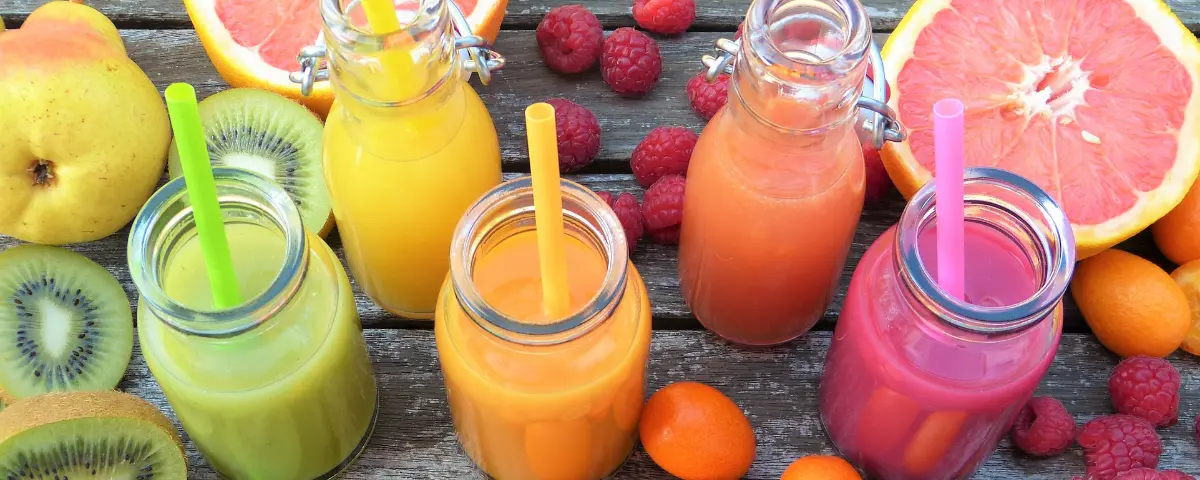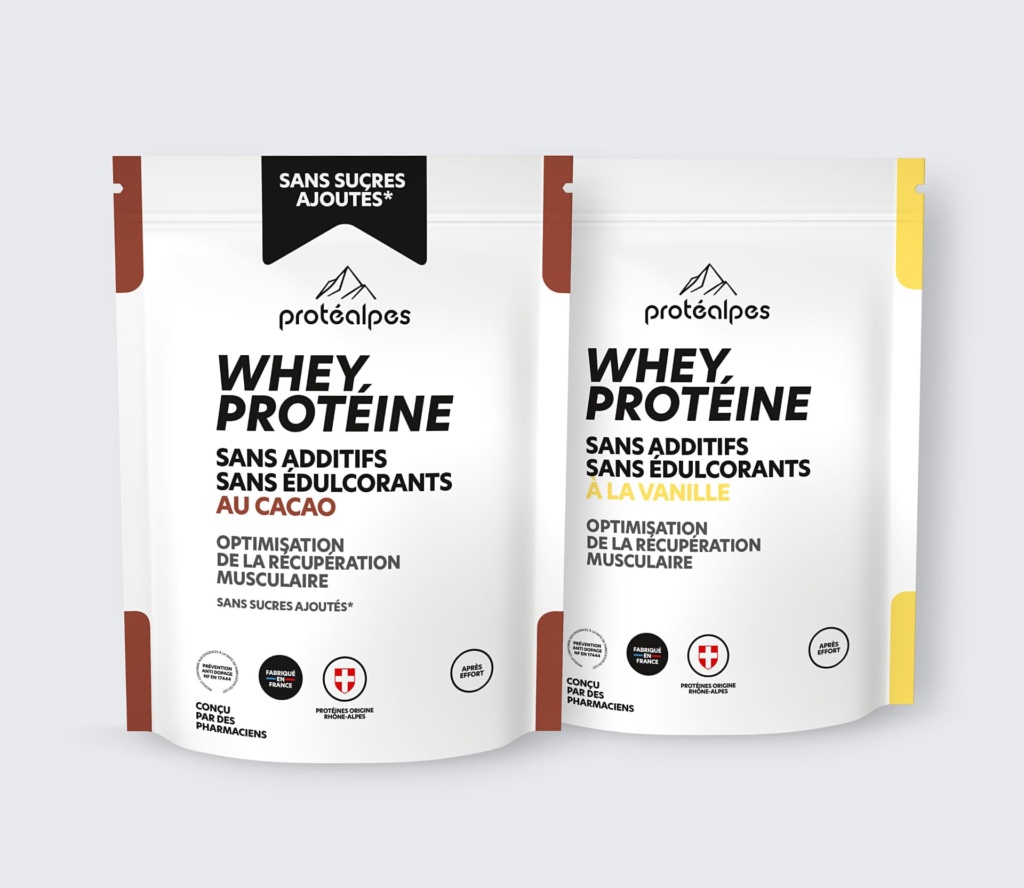Creatine monohydrate is ideally consumed with a carbohydrate-containing drink to optimize its absorption. Fresh water, however, is a simple and effective solution that's just right for you.
The benefits of this supplement depend above all on regular intake rather than on timing, with effects generally appearing after 5-7 days of constant supplementation.
Nevertheless, more and more athletes looking to maximize their performance are asking the question, "What's the best drink to take my creatine?"
Let's take a look at the different options available and their impact on the effectiveness of your supplementation.
Here's the summary in a nutshell:
| Drink | Recommendation | Justification |
|---|---|---|
| Fresh water/ambient temperature | ✅ Good | Simple, effective solution, good hydration, no extra calories. Lack of carbohydrates to improve creatine absorption. |
| Hot water | ⚠️ Avoid | Heat accelerates the breakdown of creatine into creatinine. |
| Fruit juices (apple, pear, orange...) | ✅ Very good | Carbohydrates promote absorption via insulin secretion. |
| Protein drink + carbohydrates (whey classic range) | ✅ Excellent | Combines the benefits of proteins (including BCAAs) and natural carbohydrates, ideal for post-exercise. |
| Milk | ✅ Very good | Provides protein and natural carbohydrates for better absorption. |
| Café | ❌ To avoid | Caffeine may reduce the benefits of creatine + high temperature. |
| Hot tea | ❌ To avoid | High temperatures degrade creatine. |
| Sweetened sports drinks | ✅ Good | Carbohydrates promote absorption. Not useful during exercise. |
| Alcohol | ❌ To avoid | Dehydrating and not optimal for performance. |
| Fruit smoothie | ✅ Excellent | Natural carbohydrates + nutrients + good digestibility. |
| Coconut water | ✅ Very good | Natural carbohydrates + electrolytes + hydration. |
| Vegetable beverage (almond, soy, oat...) | ✅ Good | An alternative to milk, some naturally contain carbohydrates. |
| Kombucha (caffeine-free) | ⚠️ Medium | May contain probiotics, but potentially unfavorable acidity. |
| Sparkling water | ✅ Correct | Like plain water, but may reduce solubility |
| Cold herbal tea | ✅ Good | Refreshing, caffeine-free option |
| Electrolyte drink | ✅ Very good | Optimal hydration + often slightly sweet |
The ideal is to choose a drink :
- At room temperature or cool
- No excessive acidity
- Ideally with simple carbohydrates
- Match your calorie targets
- That you appreciate for maintaining regularity of intake
What are the best creatine drinks?
The simplest solution is to take your creatine with a glass of water. This solution has the advantage of not adding unnecessary calories if you're on a special diet.
A large glass of water also helps to maintain hydration, which is essential for all athletes. Nevertheless, for those who wish to take their creatine with a more gourmet drink, here's our advice!

Why take creatine with carbohydrates?
While water works perfectly, drinks containing carbohydrates can potentially improve creatine absorption. Carbohydrates stimulate the secretion of insulin, a hormone which facilitates creatine transport to the muscles. So fruit juices or other sweetened exercise drinks are a very good solution to accompany your creatine intake.
Apple juice, pear juice, orange juice... There's not necessarily an advantage in choosing one or other of these options - it's all a matter of personal preference. But be careful not to overdo the sugar intake.
Creatine is a dietary supplement that supports, not replaces, quality training and appropriate nutrition.

Creatine and proteins: a good combination?
The combination of creatine and protein is common among athletes who want to optimize their performance.
Scientific studies confirm that this combination optimizes muscle recovery and growth thanks to their complementary effects:
- Whey provides essential amino acids for muscle protein synthesis
- Creatine improves strength and power during exercise, enabling more intense sessions
Milk and whey protein are excellent choices to accompany an intake. Not only do they provide essential protein for muscle recovery, but they also contain natural carbohydrates which promote creatine absorption.

Can creatine be taken with hot drinks?
While creatine monohydrate powder is stable and shows no signs of degradation over several years, even at high storage temperatures, this is no longer the case once it has been dissolved.
Creatine in solution potentially undergoes intramolecular cyclization, converting it into creatinine (a metabolic waste product).
This phenomenon is accelerating with1:
- A high temperature
- An acid pH
Creatine degradation can be reduced or stopped by lowering the pH below 2.5, but these conditions are not feasible for consumption! It is for these reasons that attempts to develop stable beverages containing effective doses have failed.1
In some studies, creatine is administered with hot tea to increase its solubility with temperature, but be careful:
This improved solubility does not improve tissue absorption. To preserve the efficacy of your creatine, opt for cold or room-temperature drinks, and consume your mix as soon as possible.1

Creatine + coffee: avoid
In addition to the disadvantage of mixing creatine in a hot drink, some studies have highlighted the interaction between creatine and caffeine. A 2022 review of the scientific literature presents a number of interesting, if sometimes contradictory, findings on this subject.2
Important points to remember:
- A creatine loading phase accompanied by an occasional caffeine intake before exercise poses no problem
- However, taking both substances regularly and simultaneously may reduce the benefits of creatine.
Potential mechanisms of interaction include opposing effects on muscle relaxation time and digestive disorders associated with simultaneous intake.2
To optimize results, avoid mixing creatine and caffeine directly.
This is particularly important for creatine + pre-workout mixes. The two supplements are in principle compatible and do not interfere negatively with each other, but some pre-workouts contain caffeine.
Can creatine be drunk on an empty stomach?
Yes, you can drink your creatine on an empty stomach, but this is not optimal for its absorption. Insulin helps transport creatine to the muscles, and insulin levels are lower on an empty stomach.
If you nevertheless choose to take it on an empty stomach, make sure you hydrate it well to facilitate dissolution and reduce the risk of digestive problems.
How can I optimize my creatine intake?
Finally, to optimize your creatine monohydrate cure, here are the essential points to follow:
- Choose a quality supplement: creatine monohydrate with the Creapure® label is the first guarantee of quality and effectiveness.
- The regularity ofcreatineintake, including on rest days, is the most important factor, much more so than the exact moment of consumption, since creatine works by gradually saturating muscle reserves.
- We recommend a daily dose of 3-5 g, ideally taken post-workout to take advantage of the increased sensitivity of muscles to nutrients, combined with carbohydrates to stimulate insulin secretion and optimize absorption. A combination with protein may also be appropriate
- Avoid taking with hot drinks or caffeine
- Follow a hydration program adapted to your training
Conclusion
To optimize your creatine supplementation, opt for a cool or room-temperature drink, ideally with carbohydrates.
Simple water works perfectly, but fruit juices, protein drinks or smoothies can improve absorption thanks to the insulin they stimulate.
Avoid hot drinks, which break down creatine, and caffeine, which can reduce its effects. Whatever your preference, regular intake (3-5g daily) and product quality (Creapure® label) are the most important factors for optimum results.
Deepen your understanding of creatine
If you play a sport that puts particular strain on your tendons, take a look at our analysis of the link between creatine and tendon health, which examines the impact of this supplement on connective structures.
To optimize your night-time recovery, find out if taking creatine before bed is beneficial and how it could influence your quality of sleep.
Are you hesitating between different forms of creatine? Our comparison between creatine monohydrate and kre-alkalyn helps you make the choice best suited to your needs.
If you follow a vegan diet, our guide to vegan creatine explains how to integrate this supplement into your lifestyle without compromising your values.
Finally, to understand where creatine comes from in your body, our article on creatine-producing organs details the biological processes involved in its natural synthesis.















